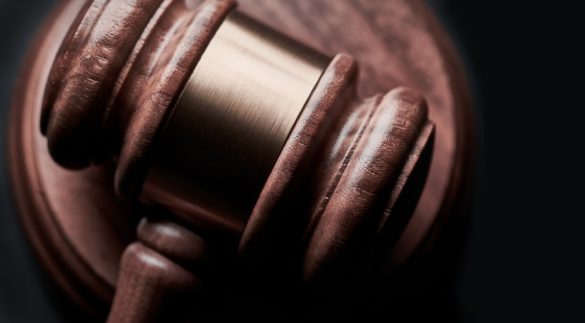
Wilbur Alter is probably best known for his role as a justice of the Colorado Supreme Court for two terms between 1928 and 1957. His impressive legal career could only be rivaled by his dedication to the community through his work at the American Legion.
Alter began his legal career in the early 1900s and, after graduating from the University of Denver in 1903 with his law degree, he partnered with Ernest Upton to establish Alter & Upton in Victor, Colorado, west of Colorado Springs. The firm was classified as a general practice by the American Bar Association but served notable power and railway clients including the Arkansas Valley Railway.
He was the city attorney for Victor, Colorado from 1910 to 1912 and again from 1914 to 1918. Alter worked as the city attorney for nearby Goldfied at the same time from 1912 to 1918. He then served in the U.S. Army Tank Service with his brother during World War I.
Alter also served as the deputy district attorney for Teller County from 1917 to 1923, then served as the deputy DA for the 4th Judicial District before becoming a district judge for the district from 1923 to 1928. He was appointed to the Colorado Supreme Court in 1928, serving as a justice until 1933. Alter was appointed again to the Supreme Court and served from 1944 to 1955 before becoming the chief justice until 1957. He was also announced in May 1925 as a trustee of the El Paso County Bar Association.
The prominent lawyer and chief justice was also a member of the American Legion, a nonprofit made up of U.S. war veterans. The Legion created an award in Alter’s name, the Judge Wilbur M. Alter Award, which was awarded to Post 161 in Arvada, Colorado “for having the most outstanding rehabilitation program in Colorado for the year 2002-2003.”
Alter authored several notable opinions during his time at the Supreme Court. One of the most cited of his authored opinions is FW Woolworth Company v. Peet from 1955. The case centered around a negligence claim from a shopper in April 1953 at an FW Woolworth department store who alleged “an unsafe condition was caused by [FW Woolworth] permitting human or animal excrement to remain on the floor in one of the aisles of the store” after knowing the excrement was there. After a trial in May 1954, the jury awarded a verdict in favor of the plaintiff with $1,300 in damages, which today would be just over $13,000.
The Colorado Supreme Court ruled that the trial court erred when it failed to grant FW Woolworth’s motion for directed verdict. Alter’s opinion says, “there are some amusing contentions” in the plaintiff’s answering brief. The shopper alleged that employees of the department store “should have been at attention to observe the event whereby the excrement was placed on the floor” but just said the failure to observe the excrement only suggests negligence. The shopper gave “no evidence concerning knowledge on the part of defendant, or that an unreasonable time had elapsed in which the condition could have been discovered and rectified.”
Since the shopper couldn’t prove the employees were sufficiently aware of the negligent sanitary conditions, the judgment was reversed and the court directed the complaint be dismissed.
Alter’s opinion in the case has been cited more than a dozen times.

